“Liberal” Reaches Beyond Book Learning
By Bill Thierfelder
President, Belmont Abbey College, North Carolina

In The Idea of a University, Newman notes that in its broadest sense “liberal” reaches beyond learning to include “Olympic games, in which strength and dexterity of body as well as of mind gained the prize.” In defining “liberal” he turns to Aristotle, who explains that whereas useful pursuits bear fruit, liberal pursuits “tend to enjoyment” in the sense that “nothing accrues of consequence beyond the using.” Take for instance Grammar of Assent, where Newman recounts the following scenario: passages of Homer, memorized and parsed through when young, will “at length come home to [the one who read these great books], when long years have passed, and he has experience of life, and pierce him, as if he had never before known them, with their . . . earnestness and vivid exactness.” Although lifelong encounter with Homer will bring him a piercing poetic knowledge, and make evident that “the current literature of his own day” is unable to rival the ancient poem, it will not make him more moral.
In considering the liberal University in its “bare idea,” then, Newman admits that such an education does not make men good (goodness being the perfection of the will), and neither does it render him Christian. However, he famously names the “philosophical habit of mind” as a fruit of liberal learning, which inculcates a “cultivated intellect, a delicate taste, a candid, equitable, dispassionate mind, a noble and courteous bearing in the conduct of life.” If it is to remain liberal, learning must be undertaken in a manner “independent of sequel,” refusing to be “informed (as it is called) by any end.” Nonetheless, such singular learning yields fruits as though accidentally, through the acquired habits and appetites of its students.
When we remember Newman’s contribution to education, we too often return to and remain in what he called the “University taken in its bare idea,” neglecting the more incarnational treatment he left us in The Rise and Progress of Universities. Here he discusses the necessary correctives which the college gives to the abstractions and specializations of universities.
Belmont Abbey as a whole strives to embody Newman’s characterization of liberality, be it in the excellent dexterousness of our athletics or our robust core classes, which ensure an expansive exposure to the Catholic intellectual tradition. However, it is perhaps in our Great Books Honors College that we more than anywhere else exemplify the college’s capacity to become a temporary home “for the young, who know nothing of the world, and who would be forlorn and sad, if thrown upon it,” for they must learn, through this “providential shelter,” how to cope with the world’s temptations.
Temptations abound, in our times as in Newman’s, when young men and women leave the faith and morals of their homes and find themselves “among strangers.” The Honors College is what Newman called a “small community” set up within the larger College, and the larger world, wherein a student’s “better thoughts will find countenance, and his good resolutions support; where his waywardness will be restrained, his heedlessness forewarned . . . his prospective deviations anticipated” and his learning measured.
When this happens soul by soul, when professors become moral and spiritual tutors both in the classroom (teaching temperance to the spirited, and courage to the shy), over poetry-peppered bonfires and evening walks with searching and struggling young persons, we witness yields beyond our imagining—a source of great encouragement from these students.
Newman contends that when “keen, open-hearted, sympathetic, and observant” young people “come together and freely mix with each other, they are sure to learn one from another, even if there be no one to teach them; the conversation of all is a series of lectures to each, and they gain for themselves new ideas and views, fresh matter of thought, and distinct principles for judging and acting, day by day.” In the Honors College at the Abbey some students, arriving from many states away, demonstrate these traits. But others arrive here with all of the anxieties that mark our age, and are habituated into them through the solicitous mentorship of professors and, importantly, the infectious studiousness, decency, and faithfulness of their peers.
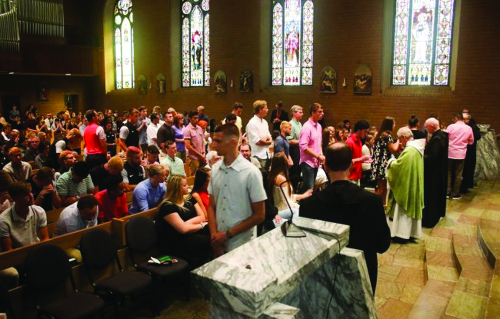
The celebration of Holy Mass at St. Joseph College Seminary, which is affiliated with Belmont Abbey College
At the Abbey this last characteristic— faithfulness—is brought to campus in the hearts and habits, minds and prayers of our students and professors. But it is also articulated in our curriculum, which expands the Great Books’ typical organizational markers of “Ancients and Moderns” to include “Christians” as well. The Honors College is distinctively Catholic in that, though no honors student needs to pass a Catholic “litmus test,” each will be exposed to the answers Christians have made to the fundamental questions of human life: What is the existence and nature of God? What is the nature of the relationship between God and human beings? What is the nature of grace? What does being human entail? What is the hierarchy of ends or purposes in human life? What does human happiness entail? What is human love? What is the right ordering of human virtues and excellences? That answers to such questions actually exist, that we are not merely stuck with interesting but interminable questions—this alone has the Catholic sense: truth has been revealed. As John Senior has it, “Learning is not for the sake of enquiry, enquiry is for the sake of learning.”
Catholic conviction that truth has been revealed through Scripture and tradition, that truth has been developed in the deposit of faith, besides serving the ultimate end of pointing souls to salvation, also provides a corrective to the perilous license that comes when various answers are reduced to opinions, and opinions are reduced to the “marketplace of ideas.”
Although Newman regards liberty of thought as “in itself a good,” in Apologia Pro Vita Sua he notes that in practice it inevitably “gives an opening to false liberty.”
Liberal learning needs students and professors who embody goods that transcend the “philosophical habit of mind.” As a paradigm of these transcending goods, Newman sets forth a young man named John Keble who “had the purity and simplicity of a child.” Although the bright minds of the school genuinely welcomed him as a “specimen of young Oxford,” Keble did not share their broad liberality and skepticism. Still more, he “instinctively shut up before…literary display” and “pomp . . . faults which always will beset academical notabilities.” Keble did not depreciate those who form their judgments by processes of natural reason. However, Keble excelled the solely rational by adhering, “in a broad sense,” to “authority”—especially the authorities of conscience, the Bible, the Church, and antiquity. Rooted in the realities of Christian revelation, Keble “hated instinctively…heresy, insubordination, resistance to things established, claims of independence, disloyalty, innovation” and “a critical, censorious spirit.”
It is no exaggeration to say that the students in our Honors College exemplify the character of Keble. This liberally-educated hero of Newman’s Apologia did not merely serve as a corrective to the perils of liberal learning. He achieved what Aristotle names as the natural telos of human life: happiness. Newman writes that Keble, in avowing himself to the “primary or external” sanctions noted above, was “happier.” This is the species of happiness that bespeaks the pinnacle of the Catholic college. This is the happiness of the liberally-educated: freedom from the dictatorship of relativism through adherence through humble submission to what Chesterton called the democracy of the dead; the employment of the philosophical habit of mind as a means of uncovering what truth can be discerned in the diverse, conflicting accounts and answers offered by the West’s greatest minds; and the articulate explanation of what has claims on us “prior to proof”—namely, the truths of Revelation and the beauty that saves.
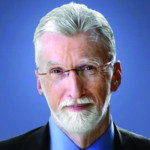 Dr. Bill Thierfelder is in his fifteenth year as President of Belmont Abbey College, a Catholic, Benedictine, liberal arts college founded in 1876 and located 10 miles west of Charlotte, N.C.
Dr. Bill Thierfelder is in his fifteenth year as President of Belmont Abbey College, a Catholic, Benedictine, liberal arts college founded in 1876 and located 10 miles west of Charlotte, N.C.
Dr. Thierfelder is a licensed psychologist and received his master’s and doctoral degrees in Sports Psychology and Human Movement from Boston University. He is a former NCAA Division I Coach, National Champion and a two-time All-American from the University of Maryland. He is the author of Less Than A Minute To Go: The Secret to World-Class Performance in Sport, Business and Everyday Life and currently serves as a member of the NCAA Division II Presidents Council.
Dr. Thierfelder has testified before the United States Congress in matters related to religious liberty. He is a Knight of Malta and serves on the Federal Association’s Defense of the Faith Committee. Dr. Thierfelder was born and raised in New York City and currently lives just outside of Charlotte, N.C., with his wife Mary and their 10 children.

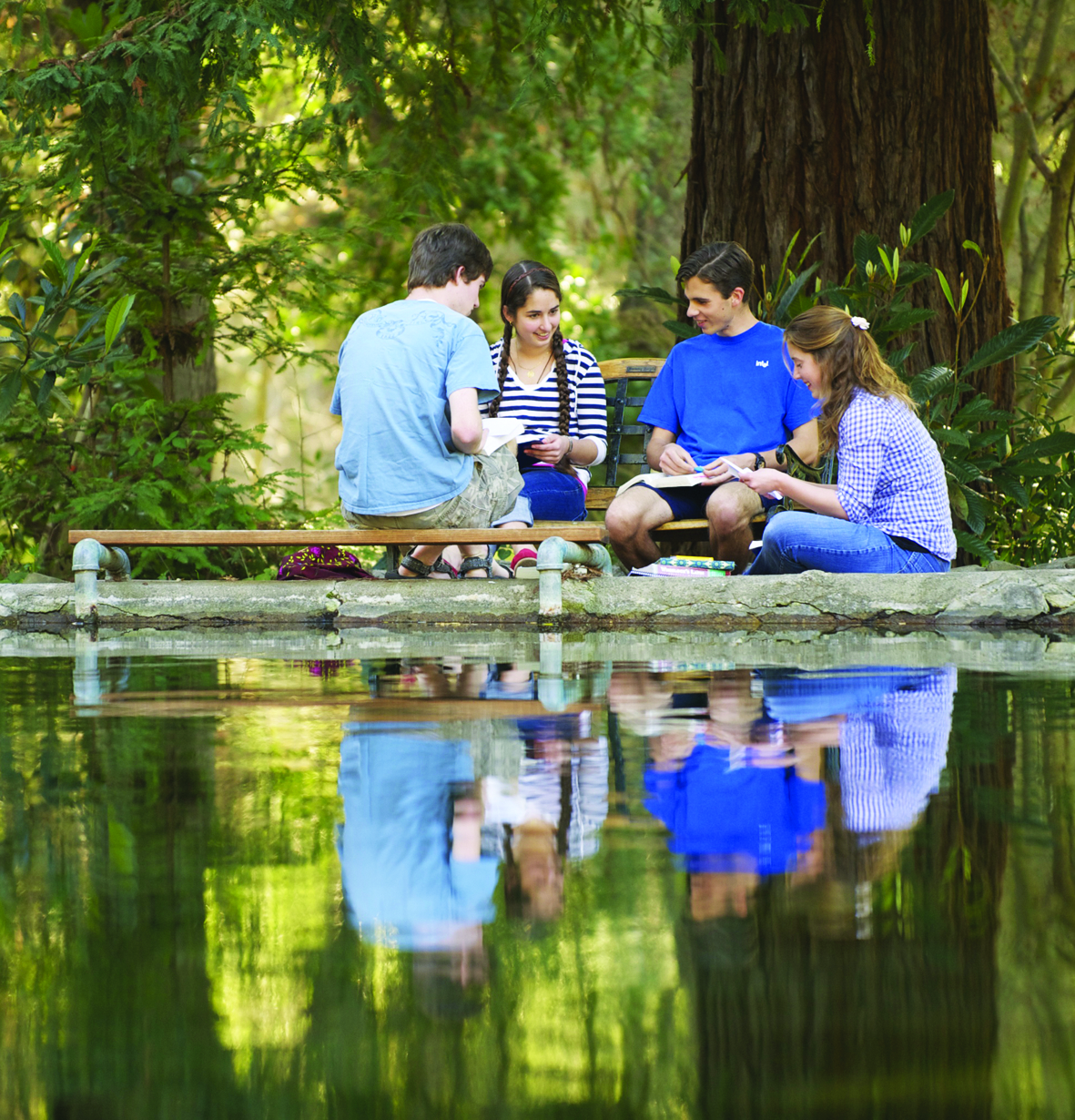

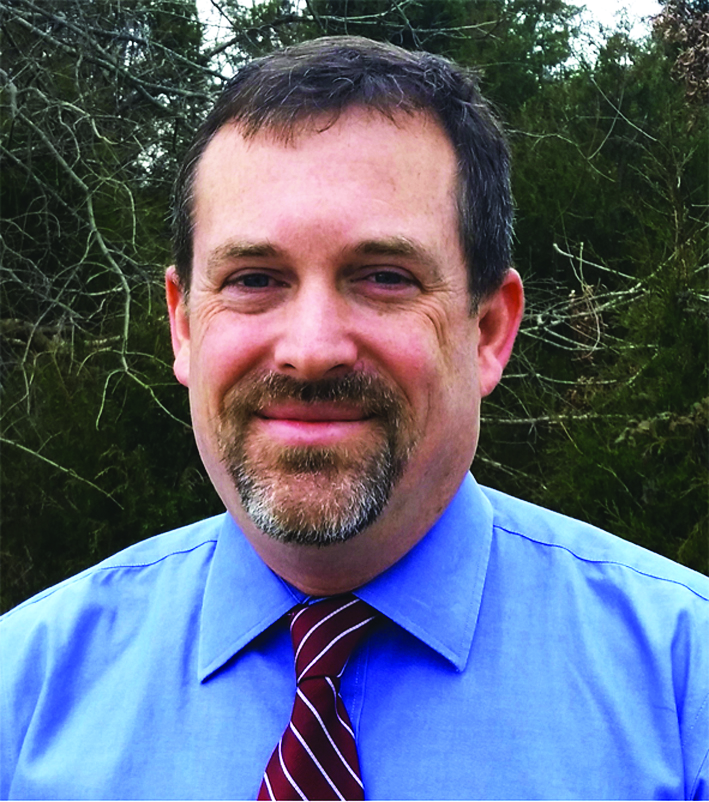
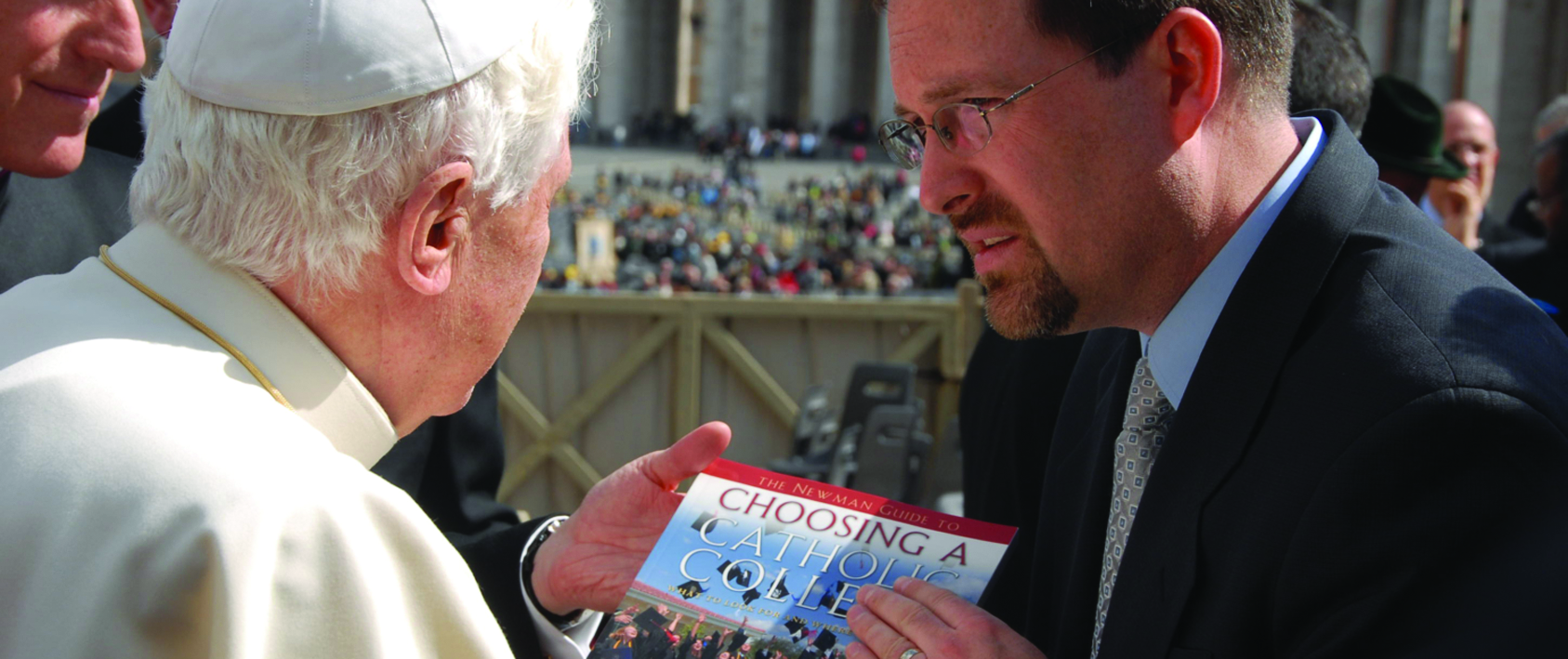
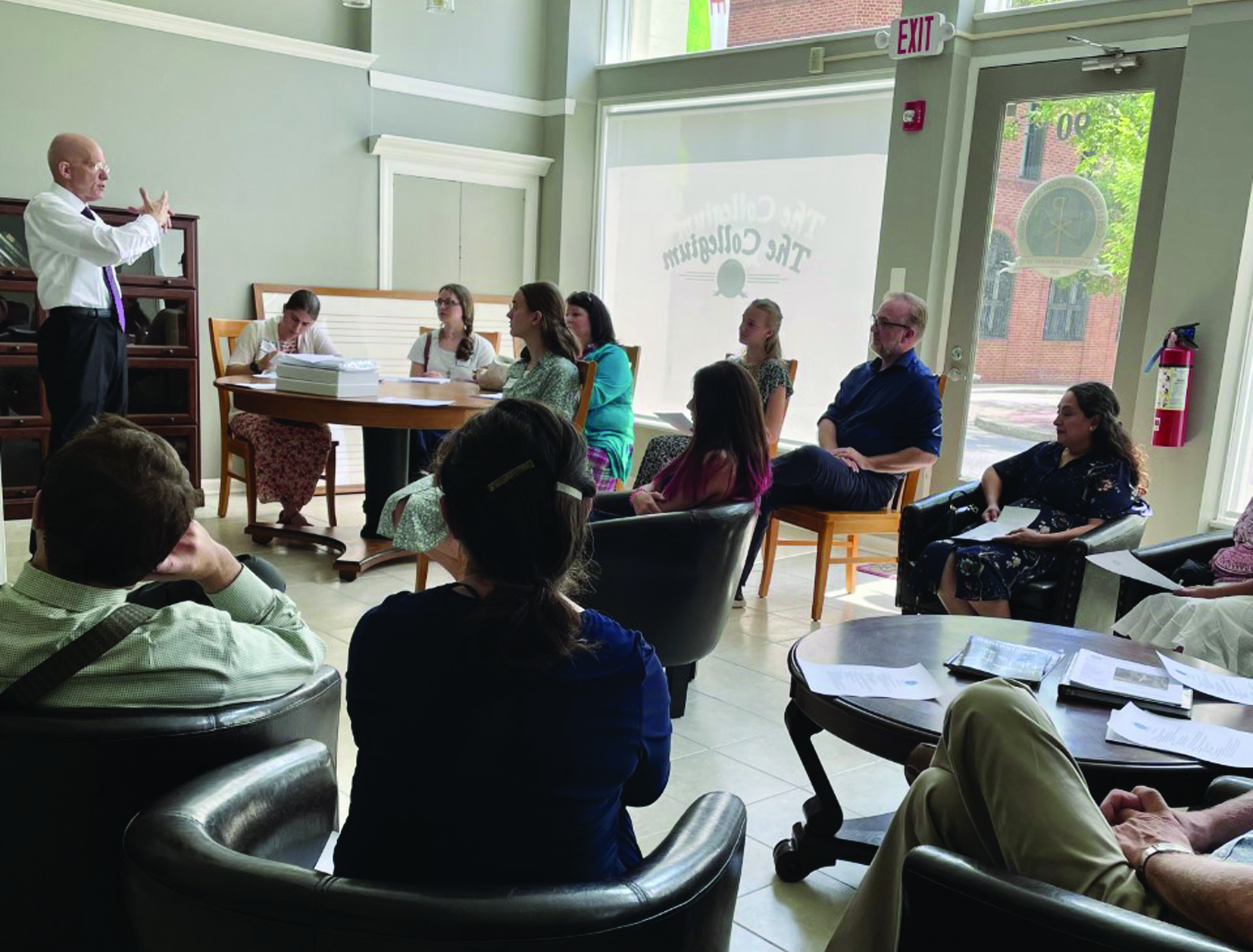
Facebook Comments